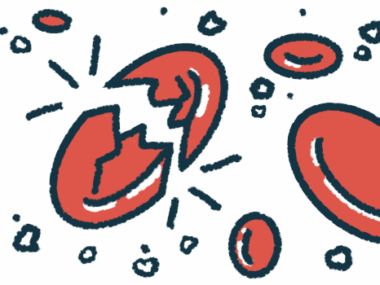The Isolation Diaries
Written by |

On March 16, 2020, United Kingdom Prime Minister Boris Johnson announced that in response to the global COVID-19 pandemic, vulnerable citizens should shield themselves for 12 weeks. My instant reaction was utter shock. How could I feasibly spend the next 12 weeks inside my house?
It’s been two weeks now, though, and I’m slowly coming to terms with my “new” environment. I’ve had to make changes to the way I get my groceries and medications, as finding open slots in delivery services has been a hard task. Thankfully, friends have helped me access the essentials that keep me going. I live with my sister so she’s also had to change her way of life to ensure she doesn’t put me at risk. Our front room has now become a weird cross between an office and social space. Our work styles are very different so working from home, together, is quite challenging.
These new adaptations have been quite difficult and I know this life will get harder before it gets easier. I haven’t quite developed cabin fever yet, but the thought of going longer without outings or visitors does upset me. All the things I once took for granted — my work commute, restaurant and the supermarket visits, and church attendance — are all gone for now.
Though it’s easy to focus on my lifestyle shift and remain upset, I must say that in times like this, I am reminded of how fortunate I am to live in a country that provides free healthcare. I also do not take for granted the developments in modern medicine and the fact that I have been privy to an advanced warning from the government on how best to stay safe. I doubt those who suffered from rare diseases and immunity problems in Wuhan were afforded such a warning during the first major outbreak.
It’s heartbreaking to hear of this pandemic’s spread across the globe. I don’t know of any sickle cell community in Wuhan’s region, but I am aware of Italy’s. At the time of this writing, about 12,000 have died in Italy. I can’t help but wonder how many of those people suffered from sickle cell or any other hematological condition. I also wonder if some in heavily infected countries try to “avoid the virus” by traveling to the Caribbean or Africa without realizing they already have COVID-19. I worry about major outbreaks in those regions because they have a higher prevalence of sickle cell anemia.
My social media feeds are full of posts propagating that the pandemic is a hoax or only as bad as the flu; they say countries taking stringent measures are overreacting. I remind those people that I suffer from sickle cell anemia. Simply put, this is a condition in which my red blood cells are funnily shaped — as such they struggle to take enough oxygen around my body. Sickle cell in conjunction with a virus that attacks the respiratory tract (thus minimizing oxygen intake) could have devastating effects on someone like me.
Please remember people like me during this time and adhere to the social distancing guidance or lockdowns implemented by each country. Making those changes to your lifestyle will help protect your wider community. The sooner we adhere to those measures, the sooner nations can flatten the curve and enable us all to return to normal.
For those who like me are immunocompromised: If possible, please exercise a complete lockdown. Speak to your employer and specialist healthcare team about ways they can support you through this pandemic. Turn to online food and medication deliveries, and limit visitors to your home.
I remain hopeful that we — our global community — will make it out the other side. When we do, the first thing I plan on is a restaurant visit for some steak. Medium rare, of course.
***
Note: Sickle Cell Anemia News is strictly a news and information website about the disease. It does not provide medical advice, diagnosis, or treatment. This content is not intended to be a substitute for professional medical advice, diagnosis, or treatment. Always seek the advice of your physician or other qualified health provider with any questions you may have regarding a medical condition. Never disregard professional medical advice or delay in seeking it because of something you have read on this website. The opinions expressed in this column are not those of Sickle Cell Anemia News or its parent company, Bionews Services, and are intended to spark discussion about issues pertaining to sickle cell anemia.






Leave a comment
Fill in the required fields to post. Your email address will not be published.